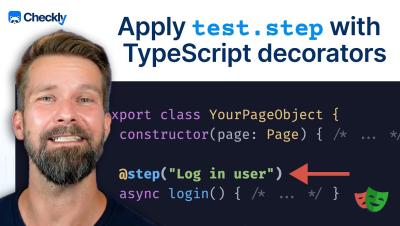How good is GitHub Copilot at generating Playwright code?
Join Stefan Judis as he explores GitHub Copilot for Playwright scripting and end-to-end test generation! Will Copilot and its new custom instructions beat Playwright Codegen in terms of code quality and generation time? Let's find out! Let's find out in this video!











